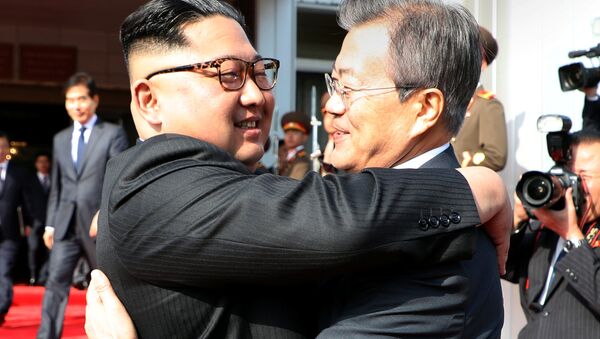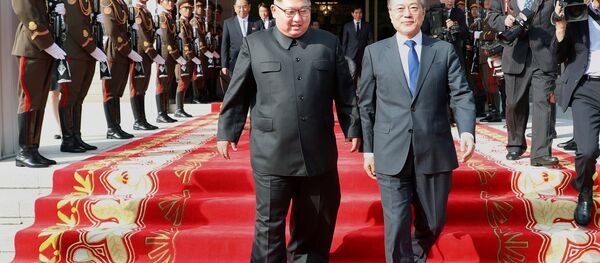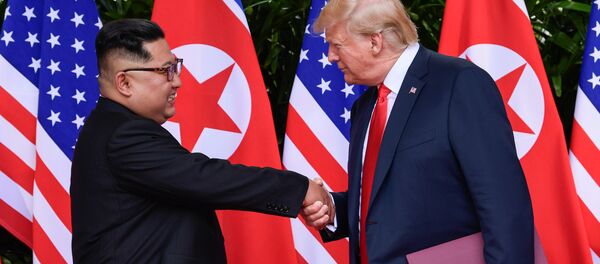Peace activist Medea Benjamin, co-founder of CodePink and Simone Chun, a fellow at the Korea Policy Institute and a member of the Korean Peace Network, joined Radio Sputnik's Loud & Clear Tuesday to discuss the cancellation of the annual military exercise "Ulchi Freedom Guardian."
"We will stop the war games [with South Korea and its allies], which will save us a tremendous amount of money, unless and until we see the future negotiations is not going along like it should," Trump revealed to reporters following his Singapore meeting with Kim June 12. "We will be saving a tremendous amount of money. Plus, it is very provocative," he added.
While a US official who spoke with Reuters Monday said Ulchi Freedom Guardian will not take place this year, the Pentagon had said in a press release earlier that day that "planning" for the drills, originally slated for August, had been suspended, Sputnik News reported.
Benjamin's activist group, CodePink, has long called for the implementation of a "freeze-for-a-freeze" scenario. Under such an accord, the US would agree to halt drills in exchange for the suspension of nuclear development by the Democratic People's Republic of Korea, North Korea's official name, even before the Trump-Kim summit ever seemed possible.
Benjamin and Chun were in the demilitarized zone separating North and South Korea during the historic meeting between South Korean President Moon Jae In and Kim on April 26 in the village of Panmunjom, where the 1953 Korean Armistice Agreement that paused the Korean war was signed.
"It was wonderful being with a group of women from around the world. We were in Korea as a part of an effort that started in 2015 when we crossed from North Korea to the South. This time we couldn't go to North Korea because Donald Trump had placed a travel ban; the only country we can't travel to in the world right now is North Korea," Benjamin told Loud & Clear hosts Brian Becker and John Kiriakou.
That was after Trump had announced that he would cancel his Singapore meeting with Kim, which he later reversed. But when he announced that it would, in fact, be held, there was "tremendous delight," Benjamin said.
Chun said that the meeting between Trump and Kim was "well received… especially for many peace activists and Korean Americans," despite outcry by the US media.
"It was a very interesting experience, and everyone agrees it was short on specifics, but it was a very important first step," Chun said.
Alongside fellow activists with the Korean Peace Network, Chun visited several members of Congress following the summit. The scholar told Sputnik she was "simply amazed" by the critical appraisal of the summit by elected officials because of their opposition to "anything that Trump does."
"A lot of Democratic senators or congress members refused to give any support," Chun said, adding that she was "disappointed" by the responses.
Nonetheless, the prospect of peace between the US and the two Koreas has "very strong momentum," said Chun, seeing that a majority of South Koreans support a robust peace agreement. "I feel that we are heading to the right direction, and I hope that America [gives] more bipartisan and American media [can] take a more gentle and softer approach toward Korea," Chun said.




